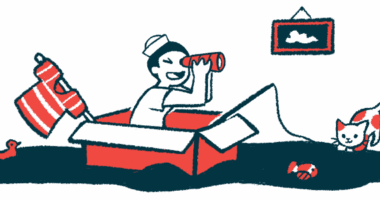My Wheelchair Is More Than a Tool — It’s an Extension of My Mind


After two years of tweaking, my new wheelchair is home for good.
I think.
Most wheelchair users dread new devices. There’s the process of submitting the claim to insurance, which is frankly straight from hell. Then there’s the seating — a monthslong process that involves strangers studying your body for inordinate amounts of time. Then there’s the adjustment period, which is easily my least favorite part. If you’re lucky, nothing will need to change, and you’ll be free to transfer wheelchairs in your own time.
But when are rare disease patients ever lucky? There’s always something that needs to change, and it’s never something that can be accomplished with a screwdriver and a little know-how.
Not to mention the time spent waiting for parts to arrive. It’s automotive maintenance but worse, because there’s only so many power wheelchair technicians in the world, and approximately 99% of them are underpaid and overworked.
You can see why this latest milestone is so important. Julian — my next wheelchair, named after 14th-century author Julian of Norwich — has been in the shop since early spring. I know better than to assume things will be smooth sailing from here on out. But I’m hopeful. At the very least, I’d like to start using Julian on a regular basis.
It’s difficult to explain to nondisabled folks why switching wheelchairs is such an ordeal. You can use metaphors all you want — I liken it to doing everything with your left hand when you were born right-handed. But there’s no way to accurately express the process, from wrapping your head around the change to adjusting to the new seat.
It’s not just physical; it’s mental and emotional as well. It’s getting a whole new body and expecting it to work the same as the old one.
A few months ago, I came across something that validated my experience of switching wheelchairs. In “Building a Second Brain: A Proven Method to Organize Your Digital Life and Unlock Your Creative Potential,” author Tiago Forte argues that external tools become natural extensions of our minds:
“In a 2004 study, Angelo Maravita and Atsushi Iriki discovered that when monkeys and humans consistently use a tool to extend their reach, such as using a rake to reach an object, certain neural networks in the brain change their ‘map’ of the body to include the new tool.”
In the depths of my brain, a lightbulb flickered to life. “That’s it!” I thought. “That’s exactly what it feels like!”
Society tends to view wheelchairs as assistive devices, like glasses or hearing aids. But it’s more like a prosthetic limb. You can take off your leg at will, but when you have it on, it’s more or less part of your body. The same goes for my wheelchair.
None of this changes the looming storm cloud of transferring wheelchairs. I’m dreading the process and will likely hate every moment. But there’s something to be said for validation. If external tools become a natural extension of the mind with repeated use, then my frustration and discomfort make sense. My neural maps are literally rewriting themselves.
I’m too hard on myself. I roll my eyes at my lived experiences, simply because they don’t reflect what nondisabled folks believe should be true. I berate myself for feeling perfectly valid emotions, and why? Because I want to pretend my reality away?
No more of that. Living with SMA is hard. To overcome this challenge, I have to acknowledge that and give myself permission to be human.
Thanks for reading! You can follow me on Twitter and Instagram, subscribe to my newsletter, or support me on Substack.
Note: SMA News Today is strictly a news and information website about the disease. It does not provide medical advice, diagnosis, or treatment. This content is not intended to be a substitute for professional medical advice, diagnosis, or treatment. Always seek the advice of your physician or other qualified health provider with any questions you may have regarding a medical condition. Never disregard professional medical advice or delay in seeking it because of something you have read on this website. The opinions expressed in this column are not those of SMA News Today or its parent company, BioNews, and are intended to spark discussion about issues pertaining to spinal muscular atrophy.
The post My Wheelchair Is More Than a Tool — It’s an Extension of My Mind appeared first on SMA News Today.




